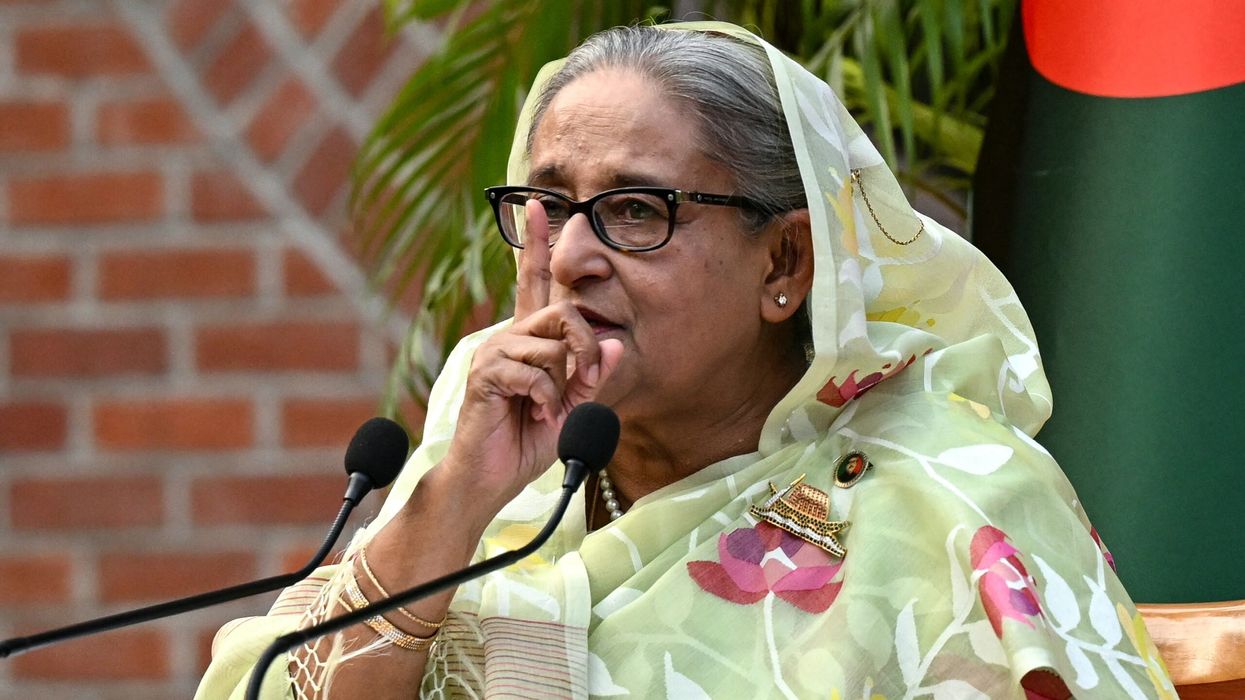The US has quietly reopened a nearly 15-year-old political asylum case against a convicted assassin of Bangladesh's "Father of the Nation" Bangabandhu Sheikh Mujibur Rahman, according to media reports.
The current government led by prime minister Sheikh Hasina has been persuading the US to extradite former Bangladesh Army officer MA Rashed Chowdhury, who is hiding in the United States.
Prime minister Hasina last year wrote to president Donald Trump seeking the repatriation of the fugitive, who along with other Army officers, was involved in the military coup that led to the assassination of her father in 1975.
US attorney general William Barr reopened the case of the political asylum of Chowdhury, the Dhaka Tribune reported last week, citing US-based news portal Politico.
Sheikh Mujib served as the first President of Bangladesh and later as the prime minister of Bangladesh from April 1971 until his assassination on August 15, 1975.
He was assassinated along with all but two of his family members by a group of Bangladesh Army personnel. His daughters – Sheikh Hasina and Sheikh Rehana – survived the massacre as they were abroad.
Twenty-three years after the assassination, Chowdhury, a former Bangladesh Army officer, and other fugitive convicts were sentenced to death by the High Court in 1998. The Supreme Court in 2009 upheld the lower court verdict, confirming the capital punishment of 12 people for killing Bangabandhu and most of his family members.
After Sheikh Mujib's assassination, Chowdhury was rehabilitated by previous governments in Dhaka led by the Bangladesh Nationalist Party (BNP). He was posted abroad as a diplomat.
He and his family fled to the US in 1996 from Brazil on visitor visas and later got political asylum in America, the Daily Star reported.
According to the Politico report published on Friday, Barr "quietly reopened" the "sprawling case that spans four decades and two continents.
"For almost 15 years, the case was closed. But now, thanks to Barr, it’s back," the report said.
On June 17, Barr directed the Board of Immigration Appeals to send Rashed’s case to him for review, making clear he would reopen the matter.
It would seem the Trump administration wants to hand over Chowdhury to Bangladesh by reopening the case, the Dhaka Tribune noted.
The document in which the attorney general made this move does not include Rashed’s name. It refers to “the matter of A-M-R-C," using Rashed’s full initials. And the details of the case described in Barr’s announcement match Rashed’s, it said.
However, a lawyer for Rashed confirmed that the case is of his client, the Dhaka Tribune report said.
Rashed's lawyers said they suspect foul play, and that if the US deports him to Bangladesh, he is going to be executed.
Barr's move is the first step in a process that could result in Rashed losing asylum and potentially facing deportation after more than a decade.
Shortly after the coup in 1975, the then Bangladesh government amended the Constitution to grant immunity to the coup's participants.
For two decades after the coup, he worked as a diplomat, stationed in Bangladesh’s embassies around the world.
In 1996, Hasina was voted to power as the prime minister. The next year, her government revoked the coup plotters’ immunity. Hasina launched a campaign to punish those involved in the killing of her father, Sheikh Mujib.
When Hasina was elected, Chowdhury was the top diplomat at Bangladesh’s embassy in Brazil — and was soon summoned home.
Fearing reprisal, he fled to the US with his wife and son on visitor visas.
Nearly 10 years after he arrived in the US, an immigration judge granted him political asylum, it said.
Of the 12 convicts in the assassination of Bangabandu, five -- Syed Farooq Rahman, Sultan Shahriar Rashid Khan, Bazlul Huda, AKM Mohiuddin Ahmed and Mohiuddin Ahmed -- were executed on January 27, 2010. Another killer, Aziz Pasha, died in Zimbabwe in 2001.
Those who remain fugitives are: Khandaker Abdur Rashid, Shariful Haque Dalim, Noor Chowdhury, Rashed Chowdhury, Abdul Majed, and Moslehuddin Khan.


















